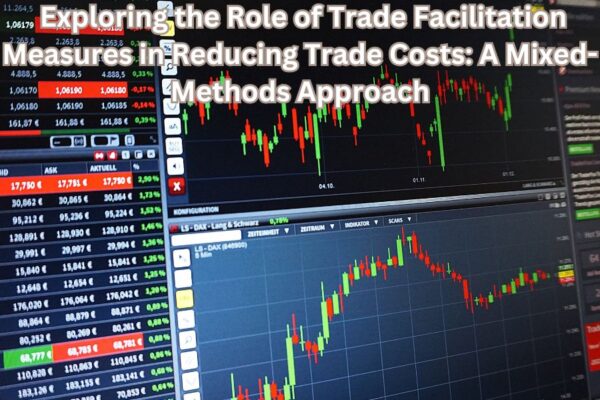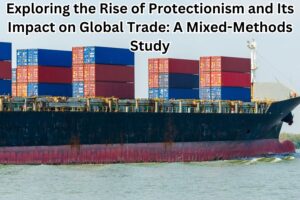Description
Exploring the Role of Trade Facilitation Measures in Reducing Trade Costs: A Mixed-Methods Approach
Abstract
Trade facilitation measures are crucial for enhancing international trade and reducing the expenses of trade. The main purpose of this research is to explore how trade facilitation measures decrease trade expenses and improve effectiveness of global trade especially in developing economies. The trade expenditures which involve transportation costs, tariffs, and non-tariff barriers might delay the goods flow around the borders. For developing the economies these expenses could be difficult for the organizations. Trade facilitation measures could assist with reducing these boundaries and enhancing the effectiveness and availability of the trade. This happens through smoothing out customs methodology, supporting straightforwardness, and further developing foundation.
The study involves a mixed-methods approach, integrating both the qualitative interviews with quantitative data analysis. Qualitative interviews entail obtaining opinions from trade experts, logistics managers, and customs officers. Whereas quantitative analysis evaluates the association between trade expense information and trade facilitation indicators. This strategy empowers the review to exploring specific activities, for example, modernizing customs and border procedures, cut down on interruptions, limit transaction expenses, and further develop trade consistency. The research likewise incorporates contextual analyses from Latin America, Asia, and Africa.
The findings from research show the effectiveness of how trade facilitation measures could decrease trade expenses through simplifying border procedures and enhancing foundation. For implementing these measure different aspects like political challenges and limited resources could also complicate. To additionally, lower trade expenses and enhance the adequacy of global trade, it features the need of technological advancement, worldwide participation, and limit building efforts. The operational costs would be efficiently lowered by using the trade facilitation measure into the organizations and helping to speed up all the customs clearances without any problems. This also helps the organizations to spread into the new markets and handle the global trade environment effectively.
Read more about the topic
Trade Facilitation and the Measurement of Trade Costs
Import processing and trade costs
View Other Projects on Trade Facilitation








Reviews
There are no reviews yet.